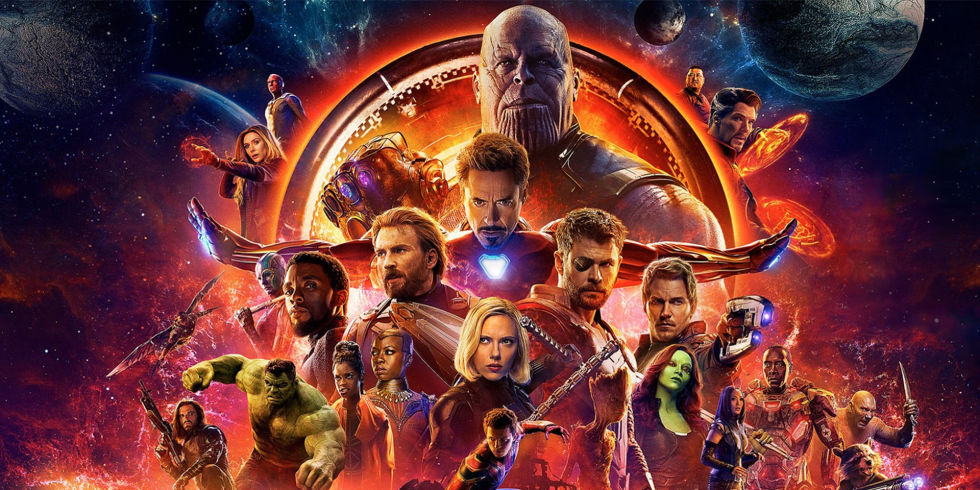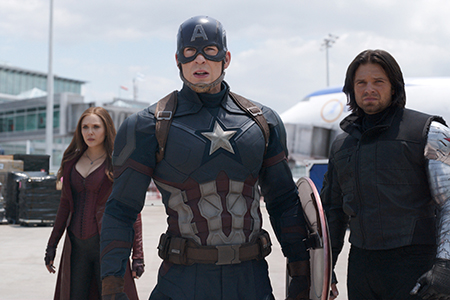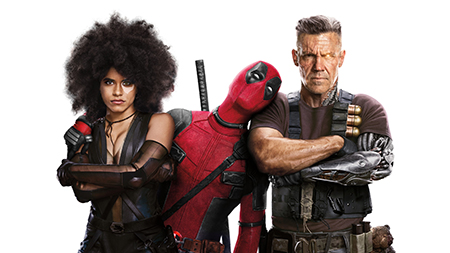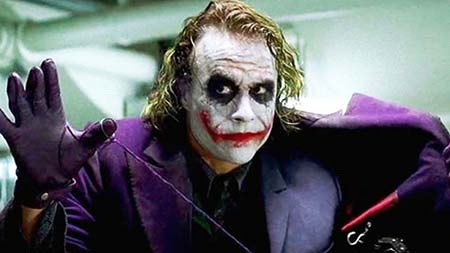
Sydney
June 21-22, 2025
Sydney Showground Olympic Park

Written by Kieron Byatt
Warning: Avengers: Infinity War spoilers ahead.
From cinema multiplexes (Ant-Man & The Wasp and Avengers: Infinity War) to cable and network television (Arrow, Krypton, The Walking Dead), streaming services and back (Daredevil, Jessica Jones), comic book adaptations are everywhere and they’re not going away any time soon.
 Yet despite the many “successes” in the medium like Black Panther and Wonder Woman, there persists to be as many “failures”. Unfairly so, even the mega-hits like Captain America: Civil War and The Dark Knight have their detractors. Much like the never-ending debates on whether the movie or the book was better, many comic book readers and moviegoers are at odds with one another over the adaptations of beloved characters and titles.
Yet despite the many “successes” in the medium like Black Panther and Wonder Woman, there persists to be as many “failures”. Unfairly so, even the mega-hits like Captain America: Civil War and The Dark Knight have their detractors. Much like the never-ending debates on whether the movie or the book was better, many comic book readers and moviegoers are at odds with one another over the adaptations of beloved characters and titles.
With this in mind, we decided to look at the pros and cons of adapting comic books for movies and television. However, in doing so we discovered the ultimate paradoxical conspiracy of comic book movies, resulting in a “Schrodinger’s Success” state, whereby every comic book movie can simultaneously be a horrible failure and a great success. What we mean is, what comic books movies get right can be the very same thing they get wrong…
Pro: There’s so much story to draw upon
Con: There’s so much story to draw upon
Many comic book properties have the word “franchise” practically stamped on their forehead. With sprawling universes full of stories and characters, comic books are ripe for churning out decade-long “monster of the week” seasons, ala Smallville, or multiple entries shared cinematic universes, ala Marvel.
With all those goodies to play around with, it gets a little difficult at times for creators to know where the focus should be, and where to stop. Then when you have multiple versions and iterations of characters and titles, which intersect, ala Fox’s X-Men universe, it gets confusing for both the initiated and the laymen to follow.
Pro: You can just copy directly from the comics
Con: You can just copy directly from the comics
What Marvel got right is it borrows from its comic book counterparts but doesn’t shackle itself to completely copying them. Captain America: Civil War is cleary based on the comic of the same name. The main idea of Steve vs Tony remains, but the story itself is drastically smaller in scale. Similarly, Avengers: Age Of Ultron delivered a story very different to the source material. Where this works is it means the creative teams are free to tell their own stories and aren’t shackled to the original.
 Where studios get into trouble is super fans aren’t always forgiving with what you choose to change. Fans threw hissy-fits when Josh Brolin was cast as Cable for Deadpool 2, claiming he was too short, like cinemagoers would pull out their tape measures and tsk when he strolled onto the big screen.
Where studios get into trouble is super fans aren’t always forgiving with what you choose to change. Fans threw hissy-fits when Josh Brolin was cast as Cable for Deadpool 2, claiming he was too short, like cinemagoers would pull out their tape measures and tsk when he strolled onto the big screen.
Equal representation and more opportunities for a culturally diverse range of actors are often met with the chide, “Just stick to how the character is depicted in the comic book!” But if the character’s ethnicity or gender identity isn’t central to their character, why can’t it be changed? Jeri Hogarth (Jessica Jones) is a man in the comics, Ben Urich (Daredevil) is white. Neither casting decisions affect the character other than we got an incredibly talented thespian to bring the role to life.
Where comic readers are exercising a flawed logic is characters are changed all the time in the comic books from canon to “Elseworld” type depictions. But whether or not Catwoman’s turn as an insane serial killer in the recent Batman #46 is canonical – you’re still exercising a muscle in your brain that allows yourself to adapt to change. If the change has no impact on the story, or drives the story forward in a better way, why the hub-a-bub?
In that vein, some fans will claim changing Thanos’s motivation in Avengers: Infinity War from the Infinity Gauntlet storyline is a stroke of genius. Others will decry it as massacring one of the most beloved comic sagas in history. But as Zack Snyder’s Watchmen proves, just remaking the comic panel for panel for the big screen can feel laboured and uninspired. Funnily enough, the opening montage and the ending of Snyder’s adaptation of one of the greatest graphic novels of all time, the two biggest changes to the source material, are two of its strongest elements.
Pro: They’re simply soap operas in spandex
Con: They’re simply soap operas in spandex
What Christopher Nolan’s Dark Knight trilogy proved is comic book movies can be just as serious and intellectual as literary adaptations. Not just that, Batman Begins showed us how plausible and realistic these worlds can be. But as thrilling and brilliant as Heath Ledger’s Joker is or how tormented Christian Bale’s Bruce Wayne is, Batman is still a comic book property with villains called Condiment King and Calender Man.
 The balancing act is to take the source material seriously, but not too seriously. However, even this can be jarring. Deadpool 2 mimicked the comic book’s penchant for steering from hilarity to graphic violence back to hilarity and then a sidestep into hardcore drama. It can cause whiplash for the viewing public. Like the “Vanessa fridging” scandal, these are changes that perhaps should have been made in order to tell a more digestible and nuanced story. That’s not to suggest that we can’t go from bleak to merry in the flick of a time-machine, either. Don’t forget the fact that the same year we got The Dark Knight, the MCU kicked off with Iron Man, a rocking but goofy film which wasn’t afraid to have hard-hitting down-beats or hilarious sequences where our hero is doused with a fire extinguisher by a robot. This is actually a thread that persists today.
The balancing act is to take the source material seriously, but not too seriously. However, even this can be jarring. Deadpool 2 mimicked the comic book’s penchant for steering from hilarity to graphic violence back to hilarity and then a sidestep into hardcore drama. It can cause whiplash for the viewing public. Like the “Vanessa fridging” scandal, these are changes that perhaps should have been made in order to tell a more digestible and nuanced story. That’s not to suggest that we can’t go from bleak to merry in the flick of a time-machine, either. Don’t forget the fact that the same year we got The Dark Knight, the MCU kicked off with Iron Man, a rocking but goofy film which wasn’t afraid to have hard-hitting down-beats or hilarious sequences where our hero is doused with a fire extinguisher by a robot. This is actually a thread that persists today.
Fans called Batman v Superman: Dawn Of Justice too dark and serious. But the lighter and Whedoned Justice League left an equally bad taste in both el natural and CGI moustache removed mouths. Those who call Marvel too goofy would be hard pressed to admit Avengers: Infinity War’s death toll left cinemas deftly silent worldwide. But then again many claim there’s no point mourning Spider-Man or Black Panther when we know there are sequels on the way. Again, it’s no different to what happens in the comics? Captain America, Superman, Wolverine, Supergirl… they’ve all died and returned. And we tuned into South Park each week despite knowing Kenny would bite it, why are we so inconsistent with our demands?
The conclusion?
As the above pros and cons illustrate, the reasons we love comic book adaptations can be the very reason we hate comic book adaptations. Batman v Superman: Dawn Of Justice made Batman a killer! So did Detective Comics #27. But it changed fundamental elements of Superman! So did Red Son. The X-Men cameos in Deadpool 2 screwed up the timeline? Pfffffft…. like the X-Men timeline has made sense from its inception!
Comic book adaptations can change the material and it can work, or it can also go terribly wrong. We want the material to be taken seriously like The Dark Knight, but not too seriously that we can’t have fun like Man of Steel. We want to see our beloved storylines on the big screen, but we don’t want to feel completely ripped off. Ultimately, the reason there’s a demand for comic book adaptations is the same reason we are so vehement when we feel those adaptations miss the mark: we just love them so much.
READ MORE:






